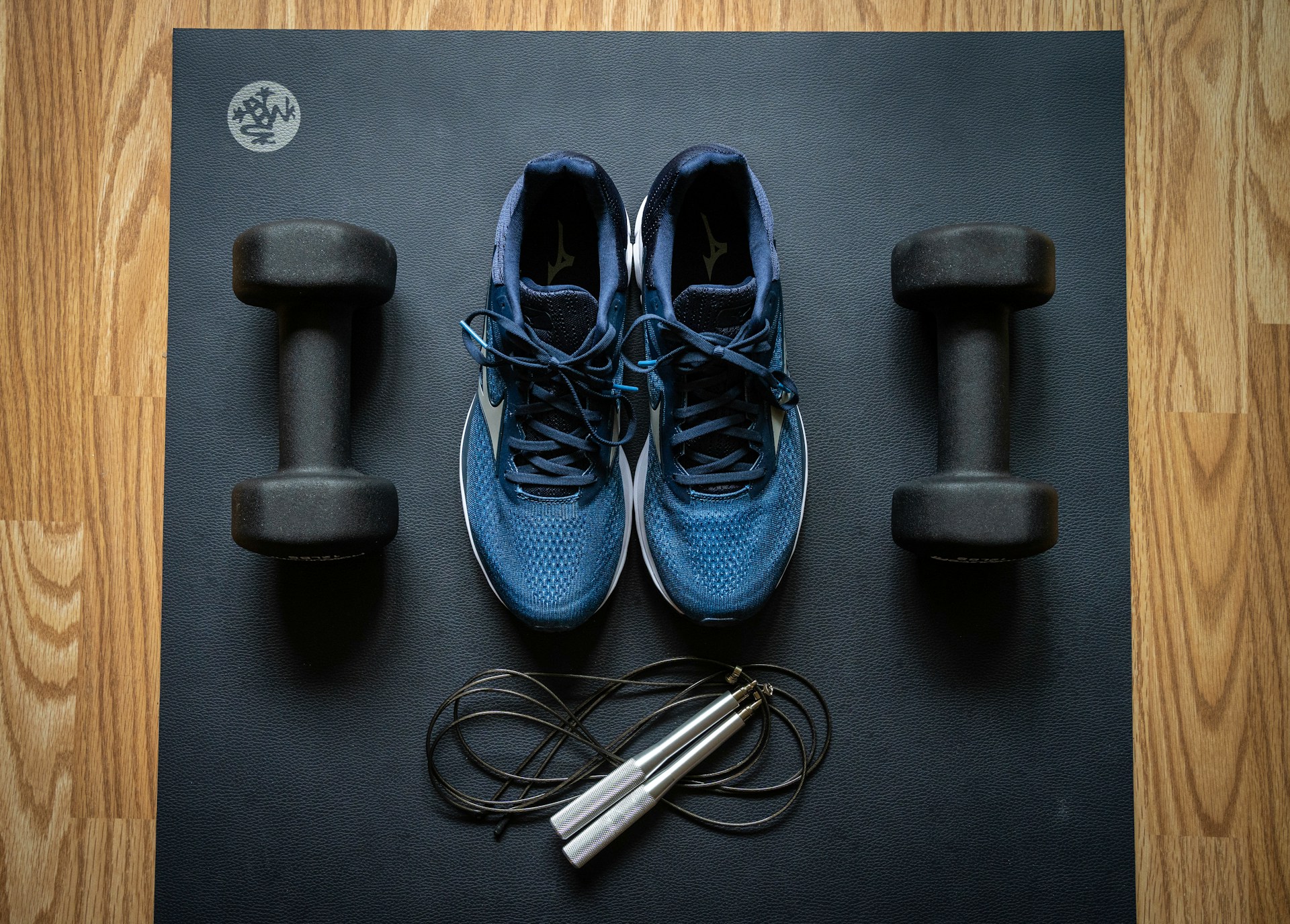There’s nothing worse than trying to stay awake at your desk, especially every single day. From too much caffeine to underlying health conditions, dozens of factors contribute to sleep quality, so let’s dive into some common reasons you’re always sleepy…and what you can do other than count sheep.
1. You Don’t Sleep Enough
This sounds like a no-brainer, but people often gloss over just how easy it is to lose sleep. From staying up to watch a show or reading another chapter, examine your bedtime habits to see if they actually impede your sleep.
 Photo by Ivan Oboleninov on Pexels
Photo by Ivan Oboleninov on Pexels
2. You Sleep Too Much
On the flip side, too much sleep can also cause fatigue by disrupting your sleep patterns. Our body’s internal clock tells us when it’s time to wake up and hit the hay, and sleeping too much throws off that clock to the point we fall asleep at our desks.
 Photo by KATRIN BOLOVTSOVA on Pexels
Photo by KATRIN BOLOVTSOVA on Pexels
3. Poor Diet
A healthy diet includes more than breakfast—major culprits like refined carbs or excessive sugar destroy energy levels throughout the day. They’re also loaded with calories and serve to harm our bodies, so cutting back on both can help keep you awake.
 Photo by Denny Müller on Unsplash
Photo by Denny Müller on Unsplash
4. Stress
It’s not always easy to sidestep stress, but its maintenance is important for overall health. In addition to exhaustion, high stress levels cause headaches, digestive issues, and potential mental illness risks like depression or anxiety. It’s also a leading cause of insomnia, which disrupts sleep even more.
 Photo by David Garrison on Pexels
Photo by David Garrison on Pexels
5. Health Conditions
All kinds of health conditions—from diabetes to thyroid problems—can impact your sleep. Don’t ignore symptoms, no matter how inconsequential, because additional conditions like anemia, kidney disease, and even chronic fatigue syndrome could also be at play.
 Photo by National Cancer Institute on Unsplash
Photo by National Cancer Institute on Unsplash
6. Mental Health
Depression and anxiety are prime suspects in sleep issues, so it’s important to keep an eye on your mental health. Both conditions not only affect your ability to sleep but can also impede work-life balance and may require medication for proper management.
 Photo by Dmitry Schemelev on Unsplash
Photo by Dmitry Schemelev on Unsplash
7. Exercise Irregularities
You may have heard that too little exercise can affect sleep patterns, but too much of it also throws a wrench in your schedule. Pushing yourself too hard can result in injuries and doesn’t give your body the recovery time it needs, leading to fatigue.
 Photo by Alexandra Tran on Unsplash
Photo by Alexandra Tran on Unsplash
8. Sleep Apnea
Don’t ignore snoring! Sleep apnea is a very common ailment that not only affects your ability to sleep but can also prevent you from breathing. If you wake up with a sore throat or constantly feel exhausted, it could be a sign you struggle to stay asleep.
 Photo by Andisheh A on Unsplash
Photo by Andisheh A on Unsplash
9. Too Much Caffeine
With the up comes the down and nothing illustrates that better than coffee (maybe sugar). Poor sleep leads to too much caffeine, which seriously harms your sleep schedule—and the cycle continues. Even outside of coffee, energy drinks and certain teas have enough caffeine to contribute to the problem, so it may be worth cutting back.
 Photo by Nathan Dumlao on Unsplash
Photo by Nathan Dumlao on Unsplash
10. Dehydration
Water keeps skin glowing, your mind sharp, and most importantly maintains a healthy sleep schedule. You’ve heard it from doctors and social media influencers alike: stay hydrated. Without enough water, your body gets far more tired far quicker.
Despite these common disturbances, there’s still a lot you can do to improve sleep quality and stop those yawns before they happen.
1. Get the Right Sleep
You’ll never get anywhere without a proper night’s sleep, so it’s worth figuring out a schedule. Whether that means heading to bed early or waking up on time, do what’s best for those extra Zs.
 Photo by Andrea Piacquadio on Pexels
Photo by Andrea Piacquadio on Pexels
2. Eat a Balanced Diet
A diet filled with lean meats, plenty of water, and fresh fruits and veggies is the perfect start to better sleep. It also does wonders for your overall health, concentration, and energy levels! Try and stick with protein so you can make it to the end of the day without hassle.
 Photo by Brooke Lark on Unsplash
Photo by Brooke Lark on Unsplash
3. Manage Stress
Breathing techniques and relaxing activities significantly reduce stress, which is important for a good night’s sleep. High stress levels often cause insomnia, so keeping yours down can bring a peaceful night’s rest without worrying about what comes next.
 Photo by kike vega on Unsplash
Photo by kike vega on Unsplash
4. Visit the Doctor
Annual check-ups give you and your physician a better understanding of your health. Underlying conditions like early onset diabetes or anemia can trigger sleep trouble, so visiting your doctor not only gives you a head start diagnosis but also allows you to get to the root of your problems.
 Photo by National Cancer Institute on Unsplash
Photo by National Cancer Institute on Unsplash
5. Work Out Appropriately
It’s important to get some kind of physical activity in, but it’s just as important to not overdo it. You can always speak with your physician about which exercises make the most sense—however, walking is a simple way to get your steps in without being too strenuous.
 Photo by Delphine Beausoleil on Unsplash
Photo by Delphine Beausoleil on Unsplash
6. Consider a Sleep Clinic
Sleep apnea is no joke and if your snoring impacts your sleep pattern, it may be time for a clinic. The good news is that some offices allow you to bring home a CPAP machine so you can report your findings rather than try with hundreds of wires attached to you.
 Photo by Zohre Nemati on Unsplash
Photo by Zohre Nemati on Unsplash
7. Balance Your Coffee Intake
It’s not really a good idea to have coffee anytime after noon, so try and cut back for your sleep’s sake. Remember that the more you have, the worse you can feel the next day, which starts a gnarly cycle. One morning cup ought to be enough to last you.
 Photo by Cyril Saulnier on Unsplash
Photo by Cyril Saulnier on Unsplash
8. Drink Enough Water
Water, on the other hand, is something you should strive to drink more of. Odds are you aren’t drinking as much as your body needs, and upping your intake maintains healthy energy levels throughout the day. The right amount of water also wards off headaches and dizziness, two symptoms easily exacerbated by fatigue.
9. Focus on Hobbies
A good work-life balance is one of the best ways to manage stress! Focusing on hobbies allows you a chance to relax and work your brain, which also helps you hit the hay in peace.
 Photo by Vincenzo Malagoli on Pexels
Photo by Vincenzo Malagoli on Pexels
10. Sleep Hygiene
Despite its name, sleep hygiene probably isn’t what you think. The practice has been around for decades and refers to factors that help you sleep—everything from your environment to the size of your meals can determine how well you sleep, so paying attention to your lifestyle makes a bigger impact than you think!










